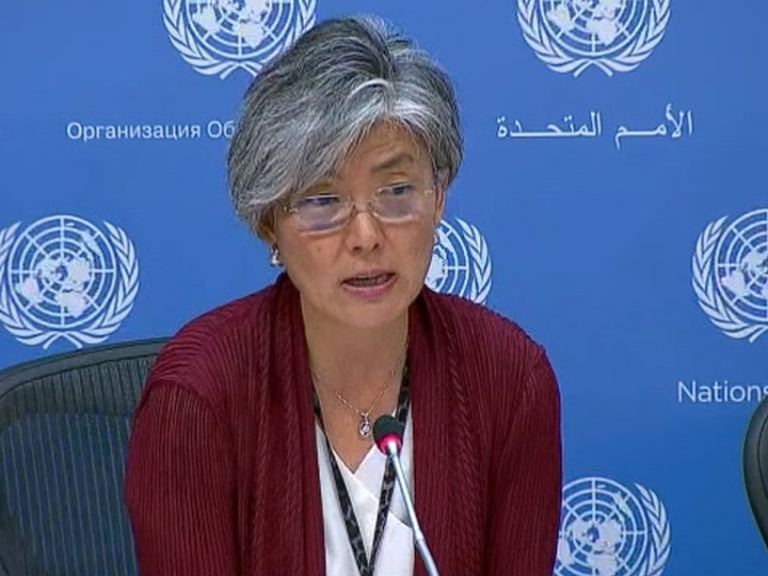A senior UN official has referred to the humanitarian situation in western Burma’s Arakan State as “appalling”, upon concluding a four-day visit to the country.
Kyung-wha Kang, UN assistant secretary-general for humanitarian affairs, told reporters in New York on Tuesday that she witnessed “a level of human suffering in IDP [internally displaced persons] camps that I have personally never seen before”.
The UN delegate visited Arakan and Kachin states, both areas fraught with conflict in the years since Burma’s transition from military rule to a quasi-civilian government.
In Arakan State, where two years of communal violence have left hundreds dead and displaced more than 140,000 people — most of them stateless Rohingya Muslims — Kyung-wha Kang said that “severe” restrictions on movement have led to “wholly inadequate access to basic services including health, education, water and sanitation”.
[related]
Those living in Arakan IDP camps are not allowed to leave, and premises are typically guarded by state police. While camp-dwellers become increasingly dependent on humanitarian aid because of restrictions on movement, state and national policies have been said to deliberately undermine assistance to IDPs.
Following the government’s expulsion of frontline health responders Médecins Sans Frontières in February, attacks on aid-worker offices in Arakan State capital Sittwe in late March dealt an enormous blow to healthcare and water distribution in the camps and isolated villages.
Humanitarian access to Arakan State has since hovered around “50 percent” of its reach before the incident, according to Pierre Peron, a spokesperson for the UN Office for the Coordination of Humanitarian Affairs. Peron told DVB last week that many aid workers, who were ordered to leave after the attacks, have still not returned for various reasons, including the reluctance of Arakanese landowners to lease property to foreign aid organisations.
Some property owners have reportedly been threatened by Arakanese locals who believe that aid workers have pro-Muslim biases.
Kyung-wha Kang fielded several questions after the press briefing, admitting that during her stay in Arakan she was “strongly advised not to use the term [Rohingya] publicly… both by government authorities and UN colleagues on the ground”, owing to the “very, very tense” situation regarding Muslim identity and citizenship.
The comments follow a recent controversy in which the UN’s children’s welfare agency apologised to Arakanese authorities for using the term “Rohingya” in reference to the stateless Muslim minority that makes up nearly all of Arakan State’s IDPs. Administrators were reportedly outraged by use of the term because many Burmese nationals refer to the group as “Bengalis”, which implies that they are illegal immigrants.
While in-country UNICEF officials could not comment at the time regarding the agency’s official policy about the term, Kyung-wha Kang reiterated the UN’s position that they will continue to refer to the group as Rohingya because that is how they self-identify.



